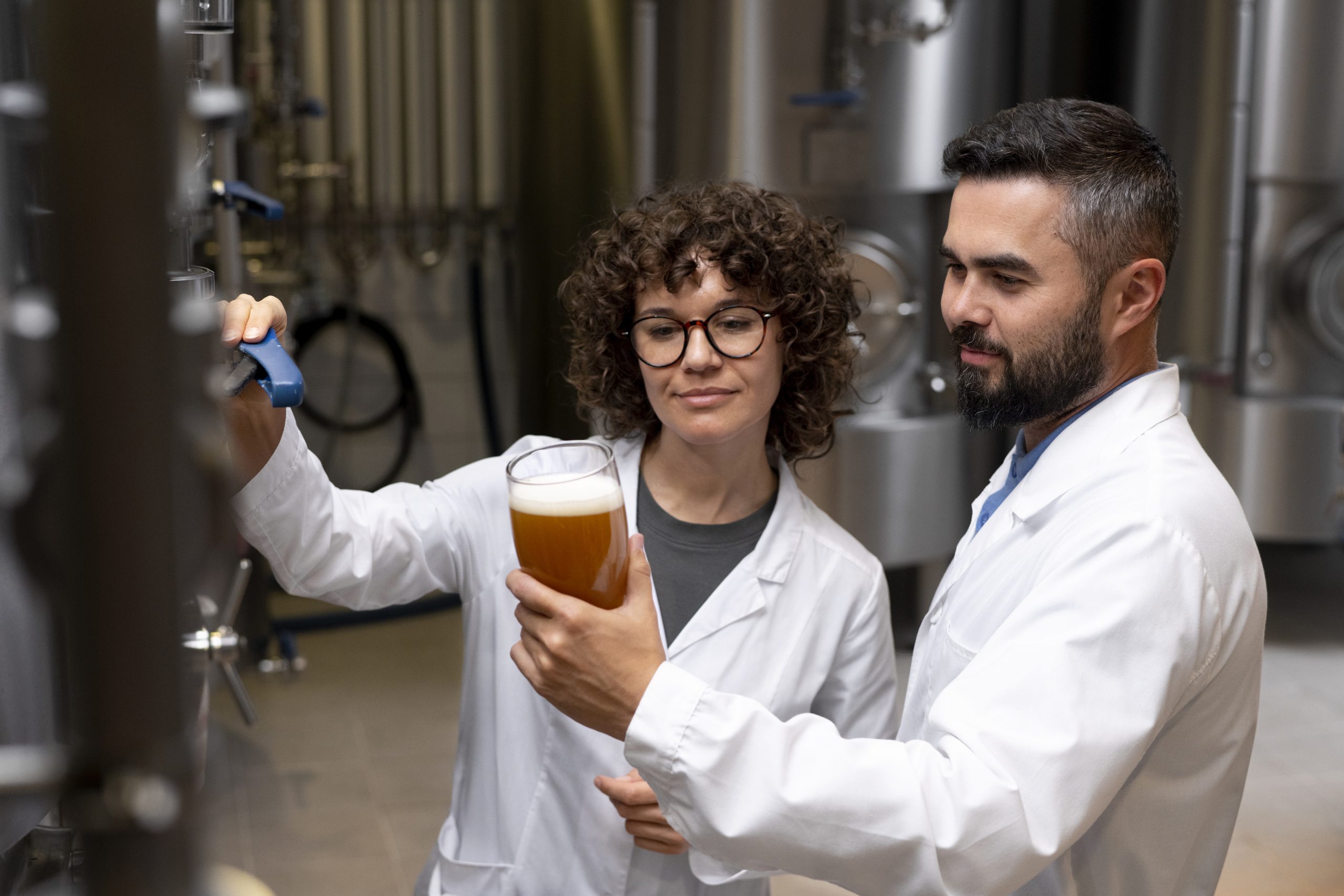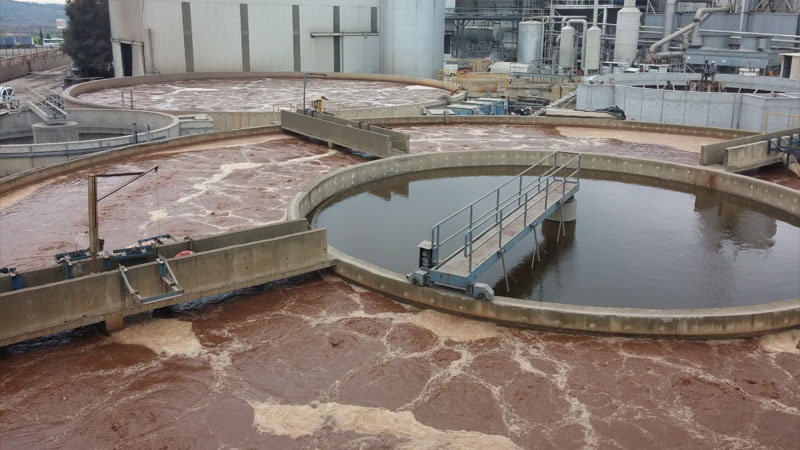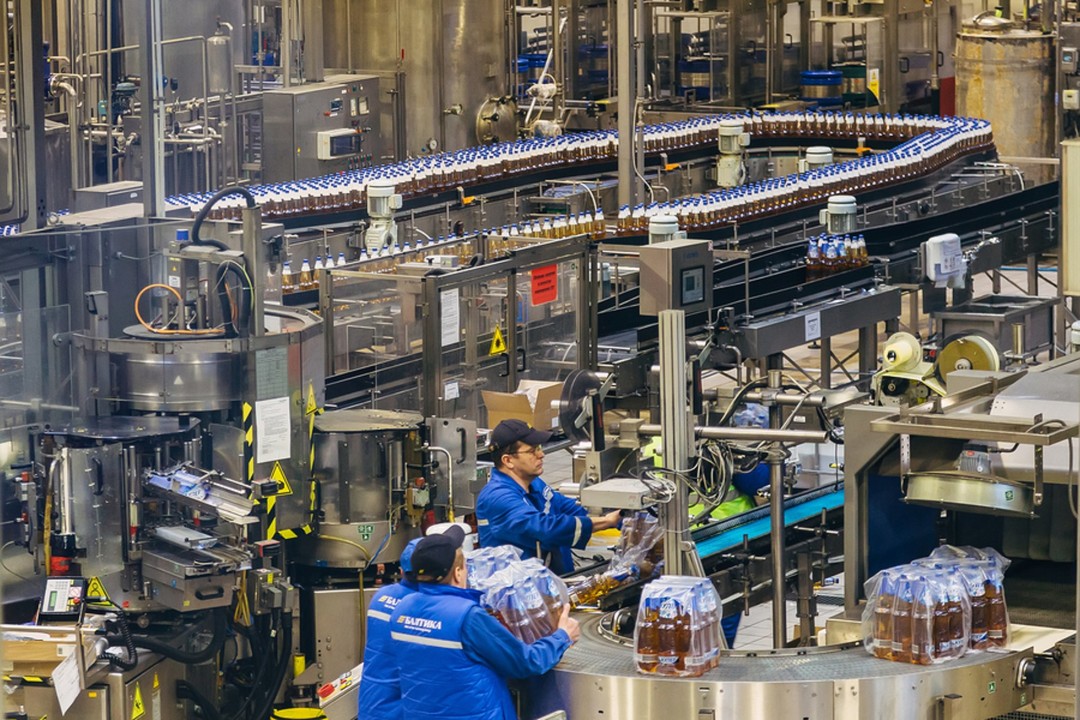
1. Introduction to Brewery Wastewater
In the beer production process, a significant volume of wastewater is generated from operations such as raw material cleaning, equipment sanitation, fermentation, and extraction. This wastewater contains organic compounds like sugars and proteins, as well as chemical substances and microorganisms that can severely pollute the environment if not treated properly. Managing brewery wastewater is a critical concern, especially as beer consumption continues to rise.
2. Composition of Brewery Wastewater
Brewery wastewater contains numerous pollutants that can have serious environmental impacts if left untreated:
- Organic Substances: Brewery wastewater has high concentrations of organic compounds, including carbohydrates from grains, proteins from yeast, lipids, and organic acids produced during fermentation. These contribute to high Chemical Oxygen Demand (COD) and Biological Oxygen Demand (BOD).
- Suspended Solids (SS): Large quantities of suspended solids, such as spent grains, yeast residues, unhydrolyzed starch, and small particles from the production process, are present.
- High Microbial Load: Brewery wastewater contains yeast and other microorganisms (bacteria, fungi, viruses) from fermentation processes, which can pose a risk of microbial contamination.
- Chemicals: Cleaning agents and disinfectants used in equipment sanitation contribute to the presence of harmful chemical compounds in the wastewater.
3. Impacts of Brewery Wastewater on the Environment and Humans
If brewery wastewater is not treated adequately, it can lead to significant environmental and human health impacts:
- Water Pollution: High BOD and COD levels deplete oxygen in water bodies, degrading water quality and causing aquatic life death.
- Soil Contamination: Organic compounds and chemicals can degrade soil quality, harming agricultural activities and plant growth.
- Foul Odors: This reduces air quality and negatively affects the living environment for nearby residents.
- Human Health Risks: Untreated wastewater may harbor pathogenic microorganisms, increasing the likelihood of gastrointestinal and respiratory illnesses in individuals exposed to contaminated water.
4. Effective Brewery Wastewater Treatment Methods
To mitigate the environmental impacts of brewery wastewater, breweries must adopt advanced and effective treatment technologies. Common methods include:
- Biological Treatment: This method uses microorganisms to break down organic matter in wastewater. Aerobic and anaerobic treatment tanks are commonly used to reduce BOD, COD, and other organic compounds.
- Chemical Treatment: Coagulation and flocculation processes remove suspended solids and microbial particles. These processes are often combined with pH neutralization to adjust the wastewater’s pH balance.
- Membrane Filtration: Modern technology that eliminates bacteria and fine solids from wastewater, ensuring high-quality effluent.
- Ozone or UV Treatment: Ozone and UV light are used to disinfect and eliminate harmful microorganisms, ensuring treated wastewater is free of bacteria before discharge.
5. Benefits of Brewery Wastewater Treatment
- Effective wastewater treatment offers several benefits for breweries:
- Environmental Protection: Proper treatment prevents water and soil pollution, preserving ecosystems and maintaining water quality.
- Regulatory Compliance: Adhering to strict environmental regulations avoids heavy penalties from authorities.
- Enhanced Corporate Image: Implementing eco-friendly solutions boosts a brewery’s reputation among customers and partners.

6. Conclusion: Wastewater Treatment Solutions for the Brewery Industry
Brewery wastewater contains a range of pollutants that can harm the environment if not properly managed. Treatment methods such as biological processes, chemical treatments, and membrane filtration help reduce these negative impacts. Investing in modern wastewater treatment systems not only safeguards the environment but also enhances a company’s reputation and supports sustainable operations.
To learn more about brewery wastewater treatment solutions, refer to the article on Solutions for Brewery Wastewater Treatment.

 Tiếng Việt
Tiếng Việt






